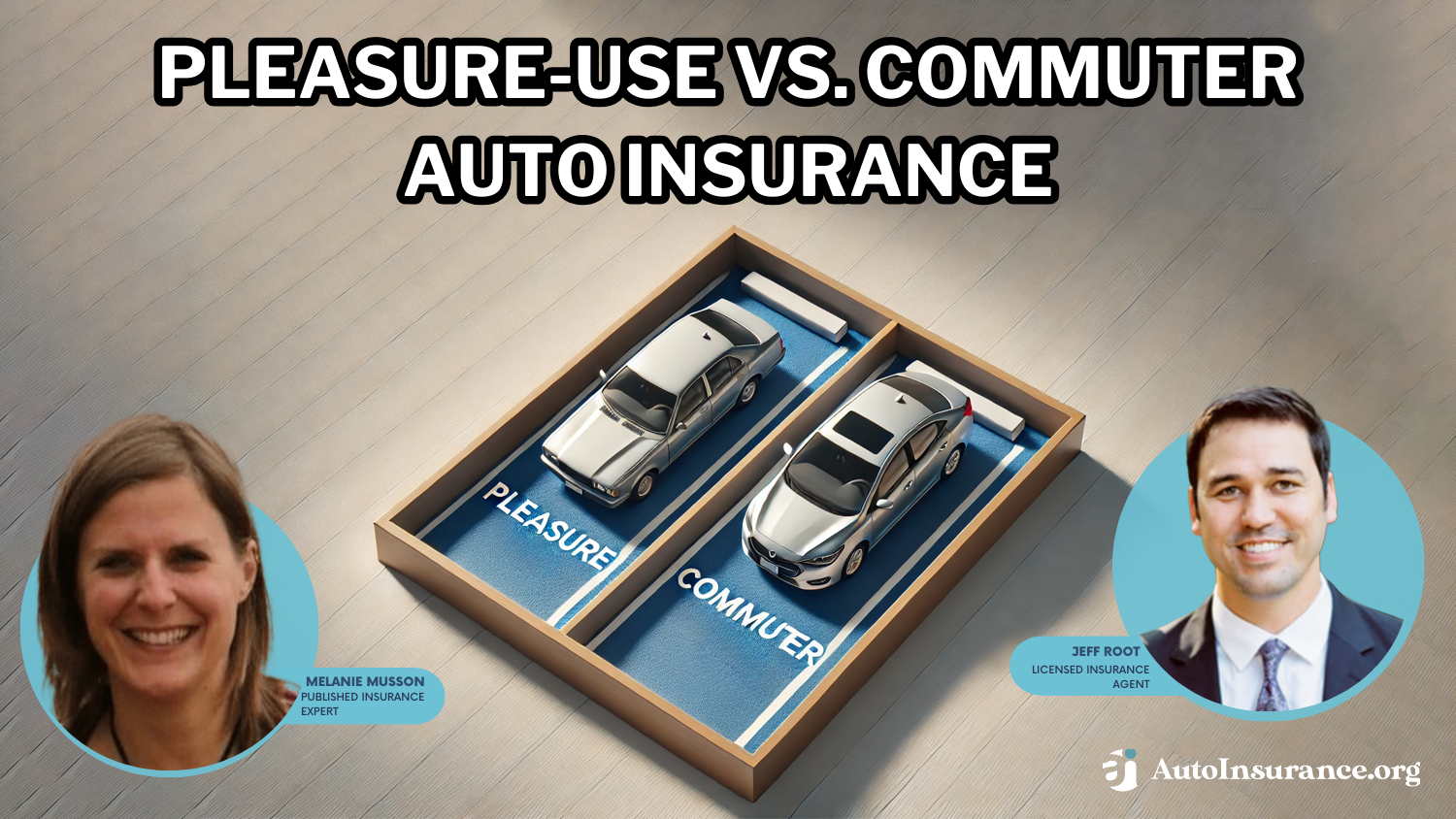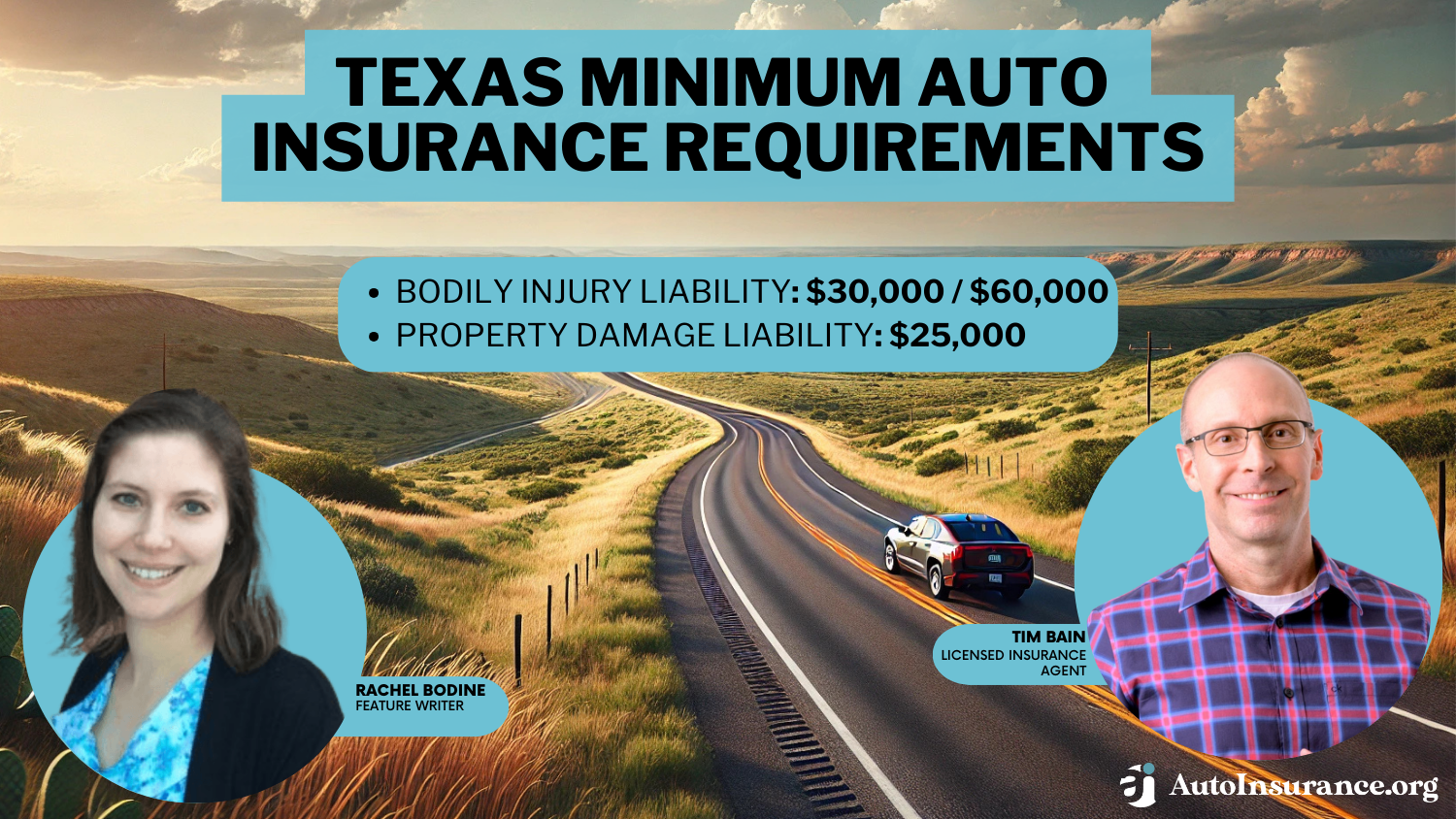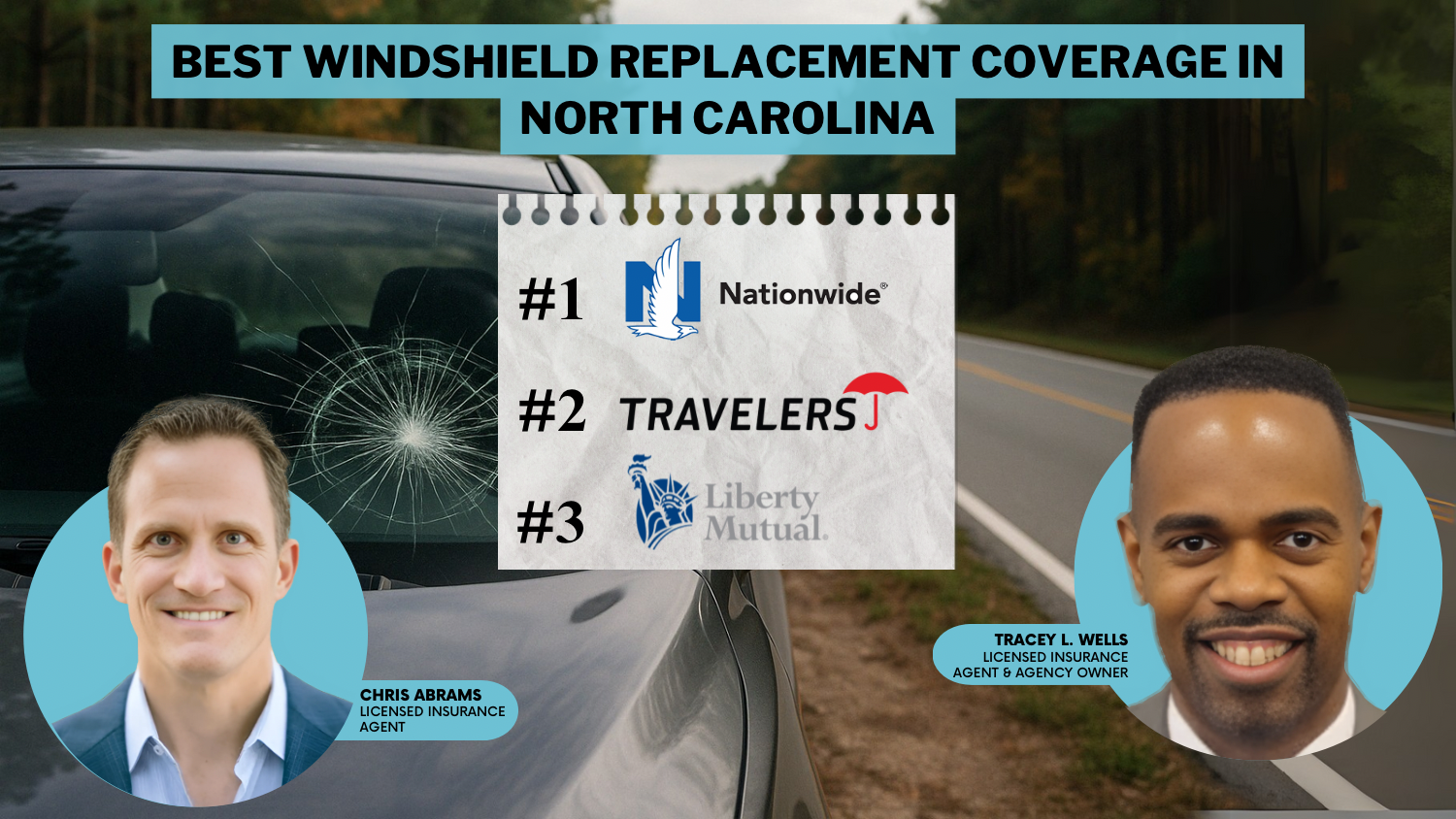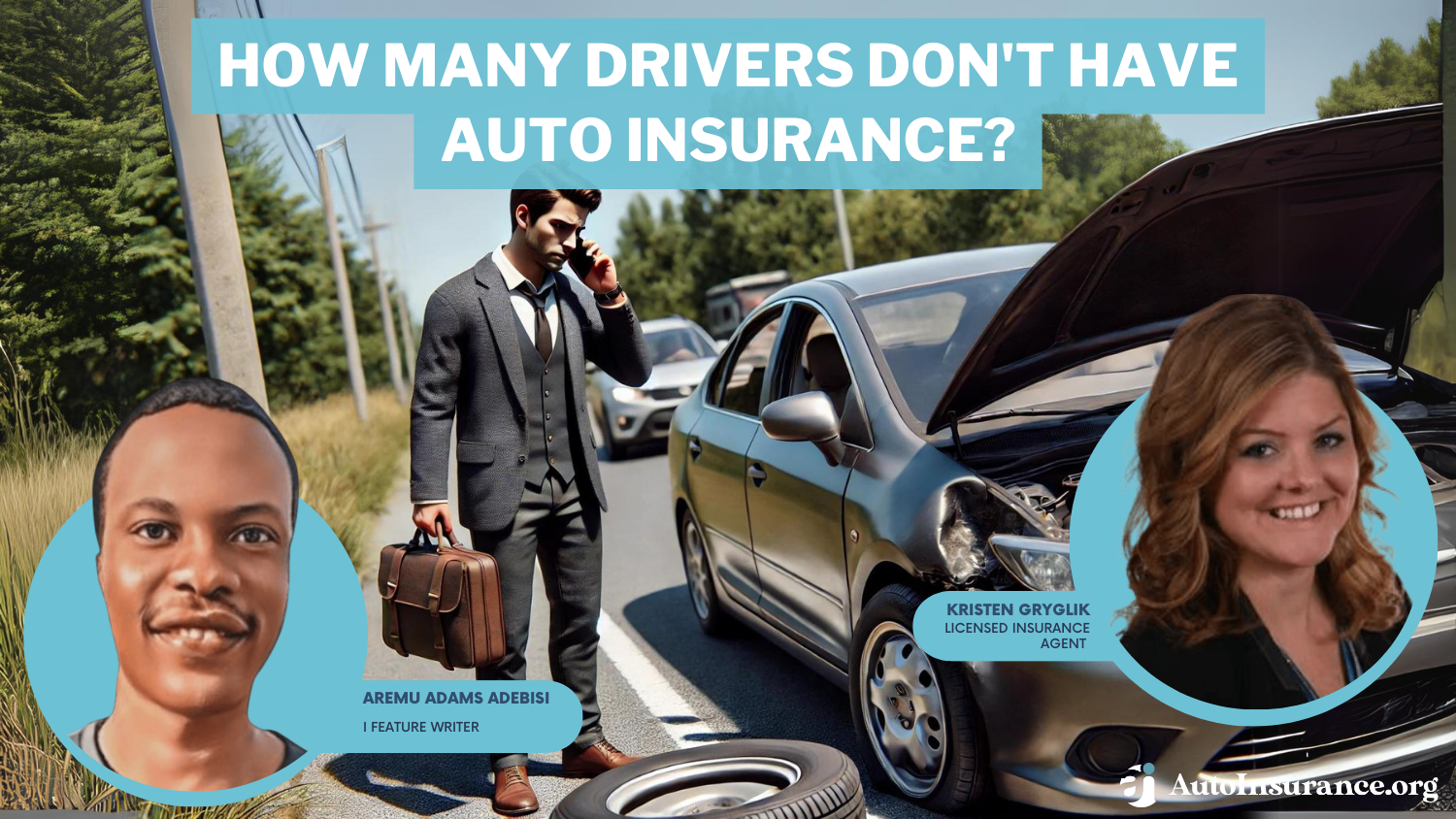Should I pay my auto insurance in full?
Drivers with spotty records are often required to pay more up front. If your driving record is clean, you might earn a 10% discount for full payment.
Secured with SHA-256 Encryption




Table of Contents
Table of Contents


Insurance Claims Support & Sr. Adjuster
Kalyn grew up in an insurance family with a grandfather, aunt, and uncle leading successful careers as insurance agents. She soon found she has similar interests and followed in their footsteps. After spending about ten years working in the insurance industry as both an appraiser dispatcher and a senior property claims adjuster, she decided to combine her years of insurance experience with another...
Kalyn Johnson


Licensed Insurance Agent
Travis Thompson has been a licensed insurance agent for nearly five years. After obtaining his life and health insurance licenses, he began working for Symmetry Financial Group as a State Licensed Field Underwriter. In this position, he learned the coverage options and limits surrounding mortgage protection. He advised clients on the coverage needed to protect them in the event of a death, critica...
Travis Thompson
Updated December 2024
Sometimes acquiring auto insurance can be confusing, especially when it comes to things like deciding when the insured has to have a paid-in-full auto insurance policy. That’s because payment plans and options vary from one auto insurance company to the next.

Not only that, but courts can impose certain restrictions on drivers who have a history of insurance-related difficulties.
Rest assured that if you’re a good driver with no history of insurance lapses, and you are insured with a reputable company, you’ll be able to select from a variety of payment options which include monthly installments, bi-monthly installments, or even paid-in-full.
If you switch insurance providers to a less reputable company, some of those options may be restricted. You’ll need to check with your individual insurance provider for details.
If you don’t have coverage already, start looking by using our FREE online tool above!
- Under normal circumstances, the average driver with a clean record will not be required to pay for car insurance in full, upfront
- There are occasions when a court may require a driver to pay for his insurance in full before a car can be registered, such as a driver having a history of insurance lapses because of missed payment
- Auto insurance policies are a contract between driver and insurance company. Therefore, any breach of the contract by the driver is grounds for termination by the insurance company
- As a general rule paid-in-full auto insurance is cheaper simply because you’re not paying the extra convenience charges normally assessed on installments
What if I’m an average driver with a clean record?
Under normal circumstances, the average driver with a clean record will not be required to pay for car insurance in full, upfront. You’ll be able to make monthly payments or other regular installments according to an agreement reached by you and your insurance provider.
You take advantage of the pay-in-full auto insurance discount. Several insurance companies impose a minor fee for the added convenience of paying in installments. However, by opting to pay in full at the time of your renewal, you can circumvent these fees altogether.
Whether or not your insurance provider offers you several payment options will depend primarily on two factors:
- History of Payments – The first one is your history of making your premium payments on time. If you have a history of repeated late payments, or policy cancellations because of missed payments, you’ll probably have fewer payment options available to you.
- Credit Score – The second thing the insurance company looks at, and this is true for especially for new customers, is your credit rating. A poor credit rating increases the chances that you’ll have to pay for insurance in full, upfront.
Free Insurance Comparison
Compare Quotes From Top Companies and Save
Secured with SHA-256 Encryption
Will a court ever require a paid-in-full policy?
There are occasions when a court may require a driver to pay for his insurance in full before a car can be registered. When this is the case it’s usually due to the driver having a history of insurance lapses because of a missed payment.
Sometimes this condition is also imposed on drivers with DWI/DUI convictions or some other serious infraction, like leaving the scene of an accident.
In such cases, drivers are generally put into a high-risk driver pool which carries with it some of the highest insurance rates in the industry.
If a court orders a paid-in-full policy there are generally two options for satisfying the requirement:
- Pay the Premium – The first option is to literally pay the entire premium for your auto insurance policy at the time the policy is issued. The insurance company issues you a receipt and informs the court that the policy has been paid.
- Get an SR22 – The other option is to get an SR22, which is simply a statement verifying you have the financial resources to pay your policy. The SR22 is filed on your behalf by your insurance company as a means of guaranteeing you’ll always have auto insurance.
If I pay my policy in full can it still be canceled?
Auto insurance policies are a contract between driver and insurance company. Therefore, any breach of the contract by the driver is grounds for termination by the insurance company. A paid-in-full policy is not a guarantee that your auto insurance can’t be canceled.
If for example, you are convicted of leaving the scene of the accident, your insurance company has the right to terminate your policy.
If your insurance company does it take this course of action, they must refund the amount of money equal to the number of days remaining in the policy period.
For example, if the amount of your car insurance breaks down to five dollars a day, and there are 30 days left on your policy when it’s canceled, your insurance company would reimburse you $150.
They are allowed by law to deduct from your refund any fees or charges related to the cancellation.
Is a paid in full policy cheaper?
As a general rule paid-in-full auto insurance is cheaper simply because you’re not paying the extra convenience charges normally assessed on installments.
But it’s also the case that some car insurance companies apply extra discounts for customers who will pay in full. These discounts can add up to be pretty significant over decades of driving, so if you can afford it may be worth your while.
Whether you are paying in full or using installments, enter your zip code below in our free online auto insurance quotes here!

Frequently Asked Questions
Is it better to pay my auto insurance in full or in installments?
Whether to pay your auto insurance in full or in installments depends on your personal circumstances and preferences. Paying in full upfront usually offers some advantages such as potential discounts, avoiding monthly fees, and simplifying your finances. However, paying in installments can be more manageable for those on a tight budget.
Are there any benefits to paying my auto insurance in full?
Yes, paying your auto insurance in full can have several benefits. Firstly, many insurance companies offer a discount, often called a “paid-in-full” discount, for paying the entire premium upfront. This discount can range from 5% to 10% of the total premium, saving you money in the long run. Additionally, paying in full eliminates the need to worry about monthly payments and potential late fees.
Will paying my auto insurance in full improve my credit score?
Paying your auto insurance in full does not directly impact your credit score. Auto insurance payments are not typically reported to credit bureaus unless you fail to make payments and the account is sent to collections. However, consistently paying your insurance premiums on time, whether in full or in installments, can indirectly help maintain a positive credit history by demonstrating responsible financial behavior.
Can I switch from paying installments to paying my auto insurance in full?
Yes, in most cases, you can switch from paying your auto insurance in installments to paying in full. However, you should check with your insurance provider to ensure they allow changes in payment plans. Some insurance companies may require you to pay the remaining installments if you choose to switch to paying in full mid-policy term.
What should I consider before deciding to pay my auto insurance in full?
Before deciding to pay your auto insurance in full, consider the following factors:
- Financial situation: Assess whether you have the necessary funds to pay the entire premium upfront without impacting your budget.
- Discounts: Inquire with your insurance provider about any discounts available for paying in full and calculate the potential savings.
- Payment flexibility: Evaluate your ability to make monthly payments if you opt for installments and whether you are comfortable managing the associated fees.
- Policy duration: Consider the length of your policy term. Paying in full may be more feasible for shorter policy durations.
Can I get a refund if I cancel my policy after paying in full?
If you cancel your auto insurance policy after paying in full, you are typically entitled to a refund for the remaining unused portion of your premium. The refund amount will depend on the insurance company’s cancellation policy, which may include administrative fees or a prorated calculation based on the remaining policy term. It’s important to review your insurance policy or contact your provider directly to understand their specific refund process.
Is paying my auto insurance in full mandatory?
No, paying your auto insurance in full is not mandatory. Insurance companies offer the option to pay in full or in installments to accommodate different financial situations. However, paying in full upfront can provide potential discounts and simplify your payment schedule, but the choice ultimately depends on your personal circumstances and preferences.
Can paying my auto insurance in full help me avoid cancellation or non-renewal?
Paying your auto insurance in full does not directly prevent cancellation or non-renewal of your policy. Insurance companies generally consider factors such as your driving history, claims history, and compliance with policy terms when deciding whether to cancel or non-renew a policy. However, consistently paying your premiums on time, whether in full or in installments, can demonstrate financial responsibility and may be viewed positively by insurers.
Are there any downsides to paying my auto insurance in full?
While there are benefits to paying your auto insurance in full, it’s important to consider potential downsides as well. One downside is the immediate impact on your finances as you need to pay a lump sum upfront. This may strain your budget or limit your access to those funds for other purposes. Additionally, if you have a change in circumstances or switch insurers, you may face challenges in obtaining a refund for the unused portion of your premium.
Can paying my auto insurance in full affect my claims process?
Paying your auto insurance in full does not directly impact the claims process. When you file a claim, the insurance company assesses it based on the terms and conditions of your policy, coverage limits, and the nature of the incident. However, consistently paying your premiums on time, regardless of the payment method, demonstrates responsible behavior and can positively influence your relationship with the insurer.
Get a FREE Quote in Minutes
Insurance rates change constantly — we help you stay ahead by making it easy to compare top options and save.







